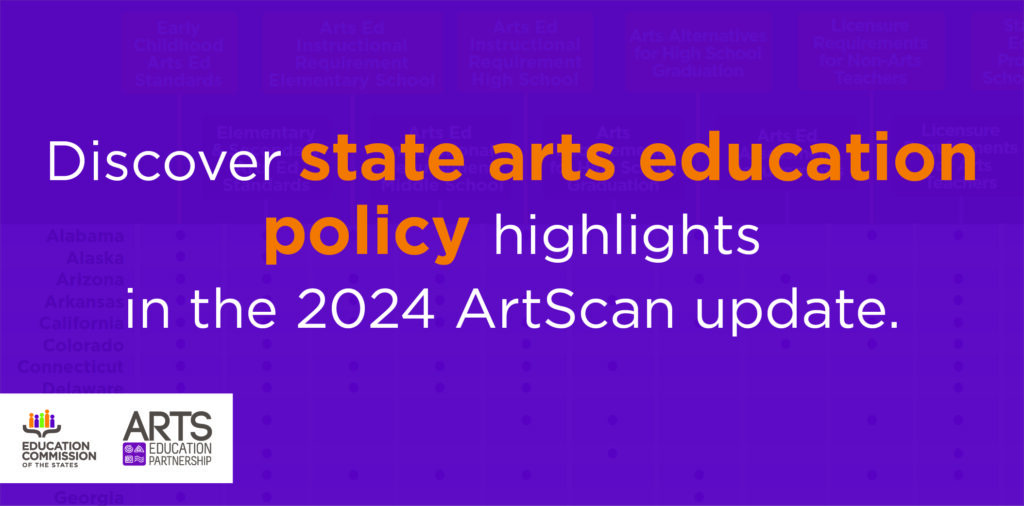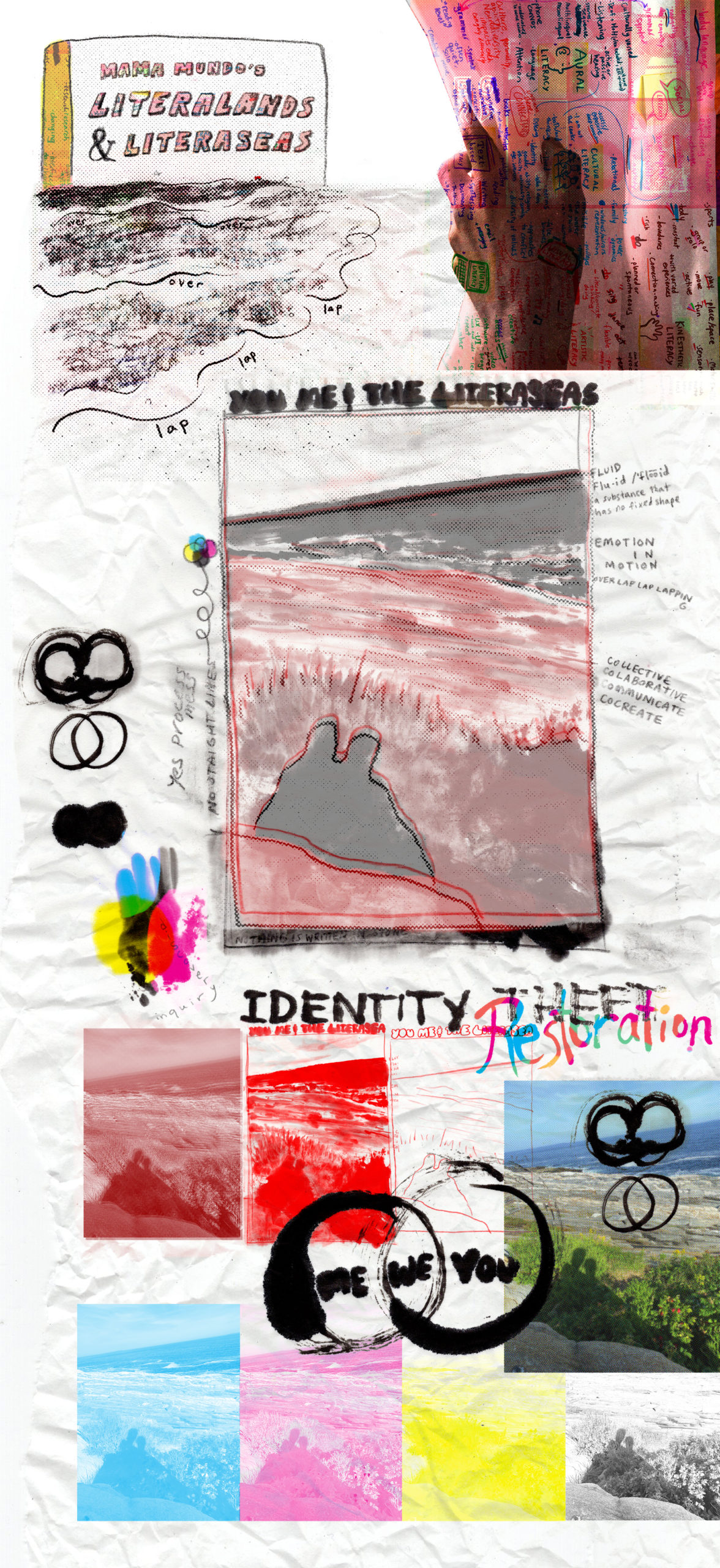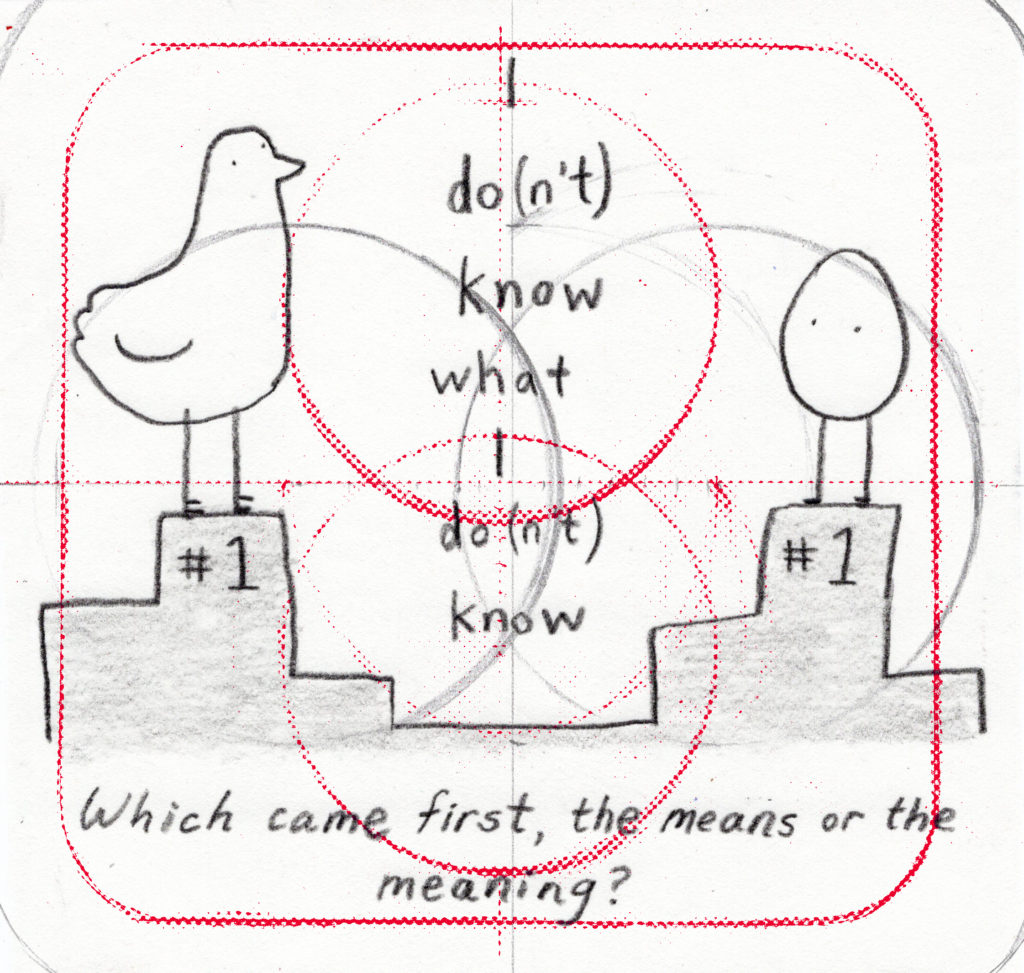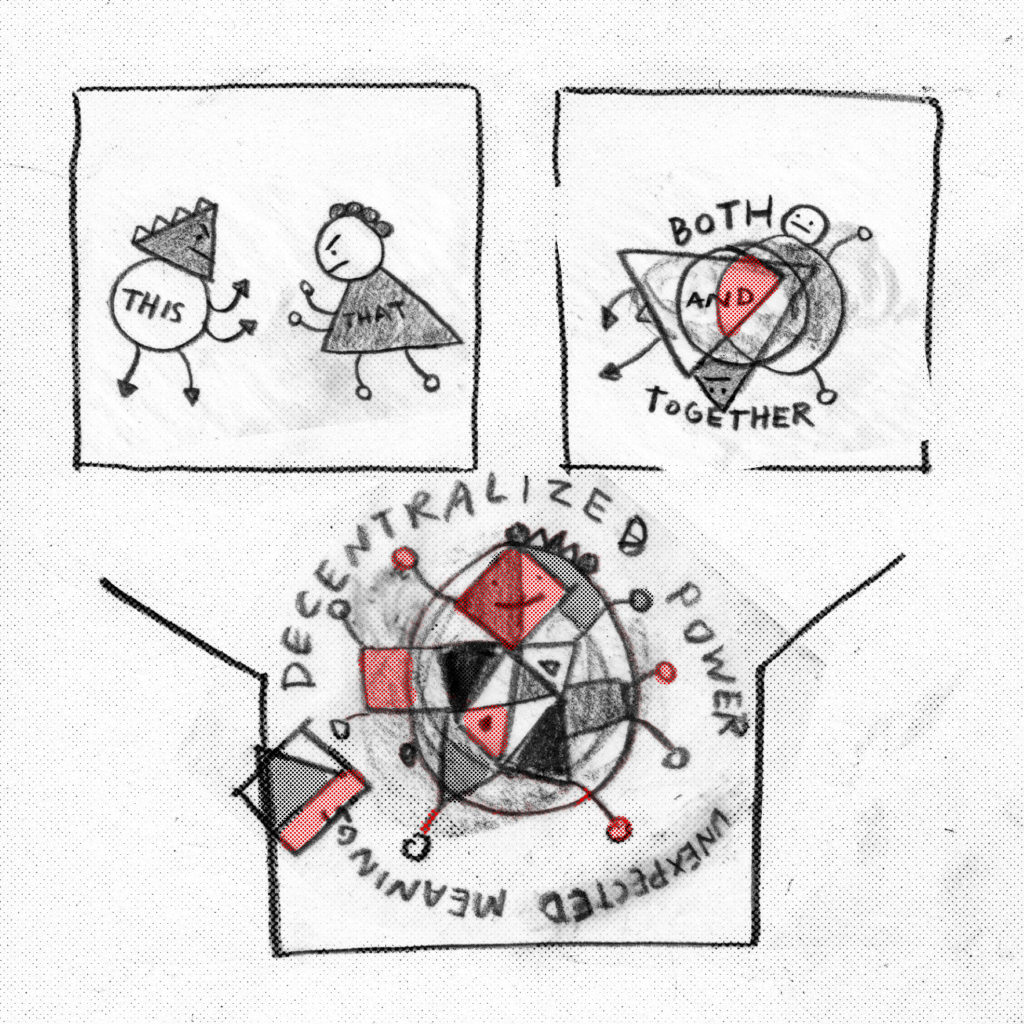What’s New in Arts Education Policy?

We hope the anticipation has subsided as this year’s updates to the ArtScan database have finally been released! ArtScan is a comparison of 13 arts education policy areas across all 50 states, the District of Columbia and the Department of Defense Education Activity. The annual update to this database is made possible in collaboration with the State Education Agency Directors of Arts Education (SEADAE) and Education Commission of the States (ECS), who offer critical feedback and support with review to ensure the arts education policies we capture are relevant and accurate.
Before our research process started this year, we hosted a focus group of members from SEADAE, ECS and our data and policy working groups to discuss ways to improve the 2024 update. The feedback we received during this meeting helped us clarify language for two policy areas:
- Arts Requirement Alternatives for High School Graduation
- Arts Requirements for Non-Arts Teacher Licensure
This year, we did not add new categories to the database; however, we saw significant changes in the existing policy areas across states. With this, let’s look at what’s new in 2024 arts education policy.
State Policy Changes
Idaho repealed its section of regulation that established the course requirements for candidates seeking a teaching certification in music, theater arts or visual arts. There are now 42 states who specify requirements for endorsement, initial licensure or certification of arts teachers or arts specialists.
Missouri repealed its Missouri School Improvement Program that specified fine arts (art and music) instruction requirements for elementary, middle and high school students. This piece of regulation also included the number of minutes required for fine arts instruction at each education level. Missouri is surely a state to keep an eye on for potential arts education policy updates.
New York updated its diploma regulations to now include alternative means of earning the required credit in the arts for graduation. A student may obtain their required credit in the arts by participating in a school’s major performing groups, such as band, chorus or theater group; or by participating in an approved advanced out-of-school art or music activity. This update promotes graduation flexibility for high school students!
Oklahoma updated its Academic Standards for Fine Arts. The new standards were written and revised by the 2022-23 Oklahoma Academic Standards for Fine Arts Executive Committee, made up of arts educators and arts education supporters. The update includes improvements to previous dance, drama/theatre, music and visual arts standards and adds new media arts standards for pre-K through 8th grade and high school.
North Carolina, Oklahoma and Texas have recently adopted an arts related diploma endorsement to recognize high school students who have demonstrated a high level of competency in one or more arts disciplines. Oklahoma’s arts diploma endorsement is tailored for exploring a college and career pathway.
Miscellaneous Arts Education Policies
ArtScan includes an “other” policy category where we capture arts education related polices that do not fit within the specified policy areas. For example, Alabama, Nevada, Ohio and Rhode Island have all adopted a policy that creates a specialty license plate to support arts education advancement in their state. Funds collected from the purchase of these license plates are allocated to arts education in general (Alabama and Nevada) or to specific high schools (Ohio and Rhode Island).
Our ArtScan resource provides comprehensive arts education policy information that we hope will assist you in your individual research, curiosity and goal attainment. Our resource is a great starting place when looking into state policy implications related to arts education implementation in schools. Please reach out to our team with questions related to this resource or with feedback to improve it. We are committed to making arts education policy information accessible and await with pleasure the opportunity to continue this annual update!



